Talking and sharing always involves at least 1 other person. Therefore it is probably best if you get them involved in any goals you set to improve your communication. Remember to share your bill of rights with others.
This is not always easy and you may have some doubts, but it will help in the long term.
To tell or keep to myself!
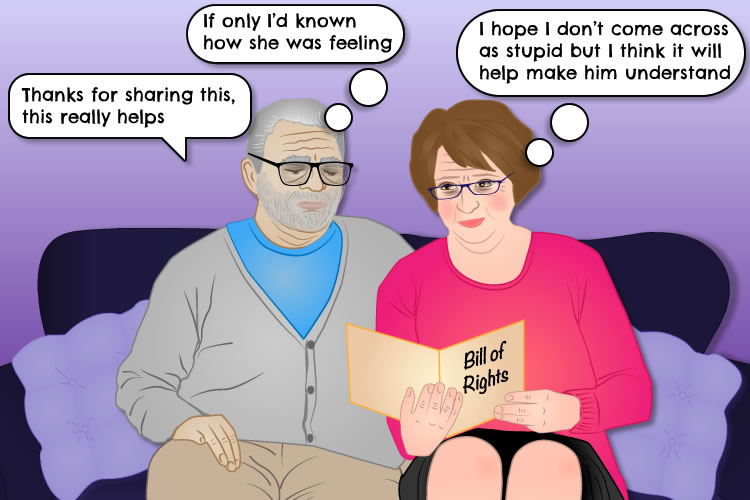
View text alternative
Lady: Thinks: “I hope I don’t come across as stupid but I think it will help make him understand”.
Man: Says: “Thanks for sharing this, this really helps”, Thinks: “If only I’d known how she was feeling’.
Something to try
Why don’t you try sharing your Bill of Rights with the people you communicate with?




 Women 2-3 units daily
Women 2-3 units daily Men 2-3 units daily
Men 2-3 units daily





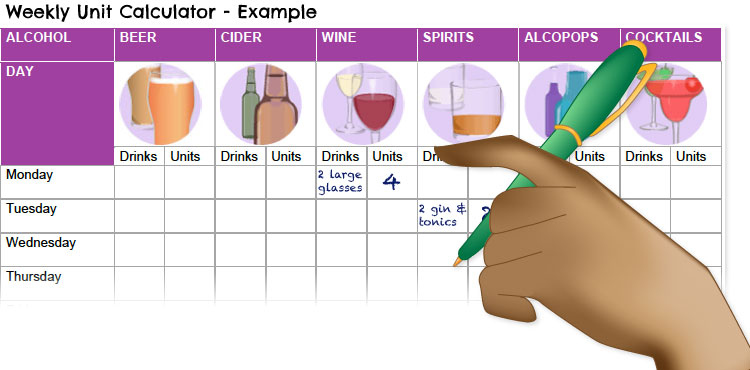
 Select the option which applies to you.
Select the option which applies to you.
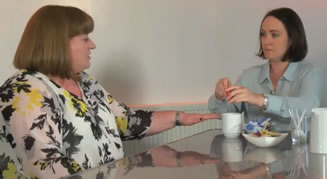
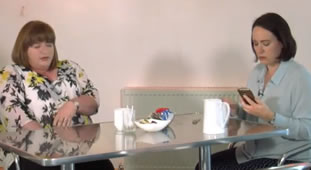
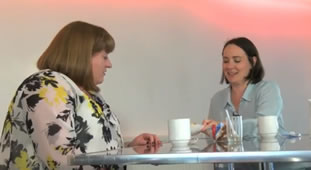
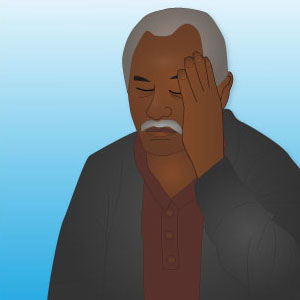

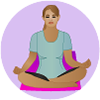



 Well I soon realised I couldn’t jump back into the thick of things. I started to go out on small walks on my own, firstly to clear my head, but I found within a short time I was able to walk further and then further still. Nothing “bad” was happening to me. In fact at the next stroke nurse appointment the nurse said my blood pressure was coming down. I was also loosing a bit of weight too. I didn’t go straight out and join a gym, but I did go out and get a dog! I get a lot from walking. Its great exercise and it’s free. It might not suit everyone, but it has given me the stamina, fitness and confidence to get back to decorating again. Not as much as I was doing before, but enough to fix all my son’s mistakes! Hugh realised that in order to reach many of his bigger goals he had to make some small steps to improve his physical fitness and overcome some barriers. His motivation was to get back to his previous role as a painter & decorator, he’s not there yet, but is more involved and is improving every day.
Well I soon realised I couldn’t jump back into the thick of things. I started to go out on small walks on my own, firstly to clear my head, but I found within a short time I was able to walk further and then further still. Nothing “bad” was happening to me. In fact at the next stroke nurse appointment the nurse said my blood pressure was coming down. I was also loosing a bit of weight too. I didn’t go straight out and join a gym, but I did go out and get a dog! I get a lot from walking. Its great exercise and it’s free. It might not suit everyone, but it has given me the stamina, fitness and confidence to get back to decorating again. Not as much as I was doing before, but enough to fix all my son’s mistakes! Hugh realised that in order to reach many of his bigger goals he had to make some small steps to improve his physical fitness and overcome some barriers. His motivation was to get back to his previous role as a painter & decorator, he’s not there yet, but is more involved and is improving every day. Writing: Day 1
Writing: Day 1 Writing: Day 2
Writing: Day 2 Writing: Day 3
Writing: Day 3